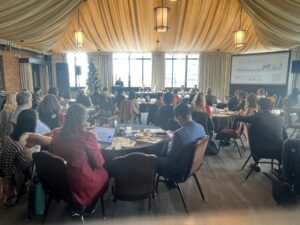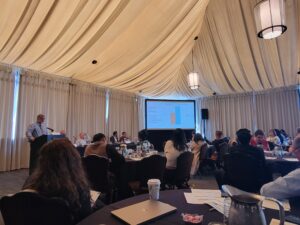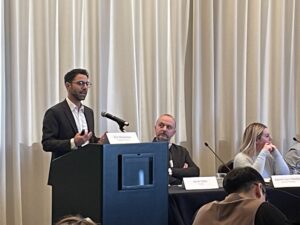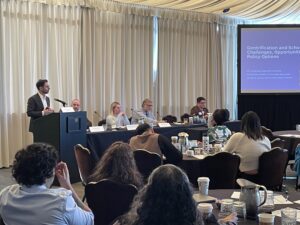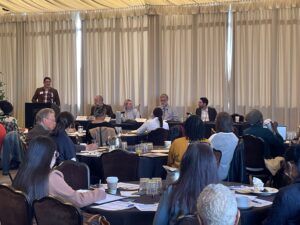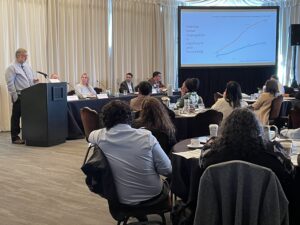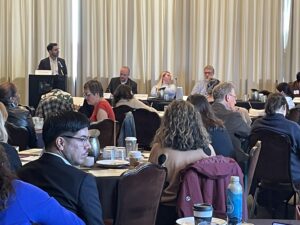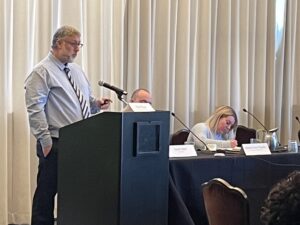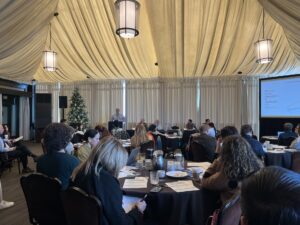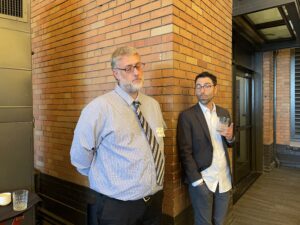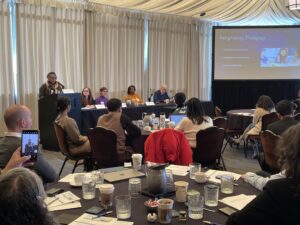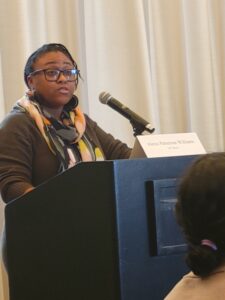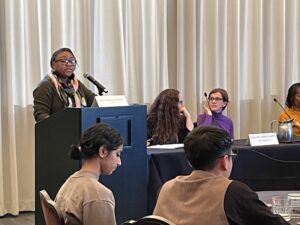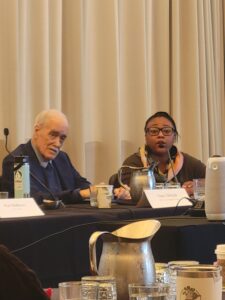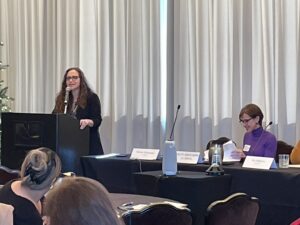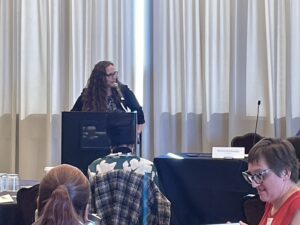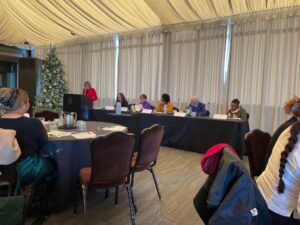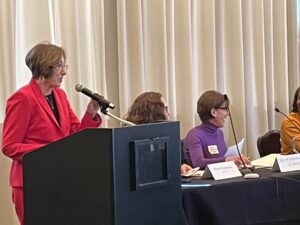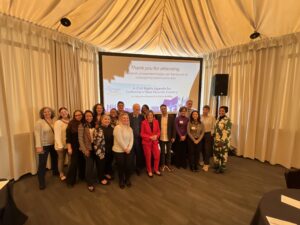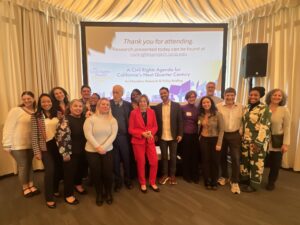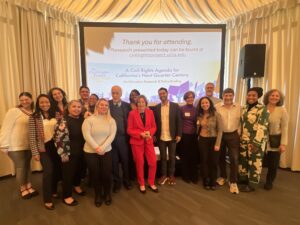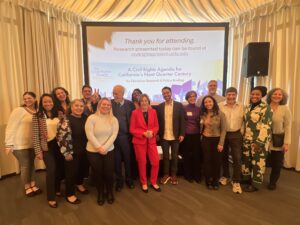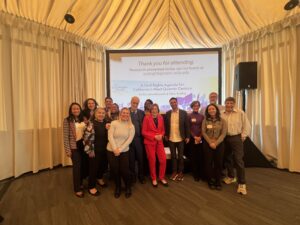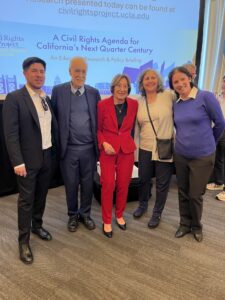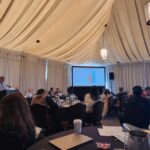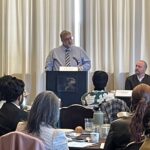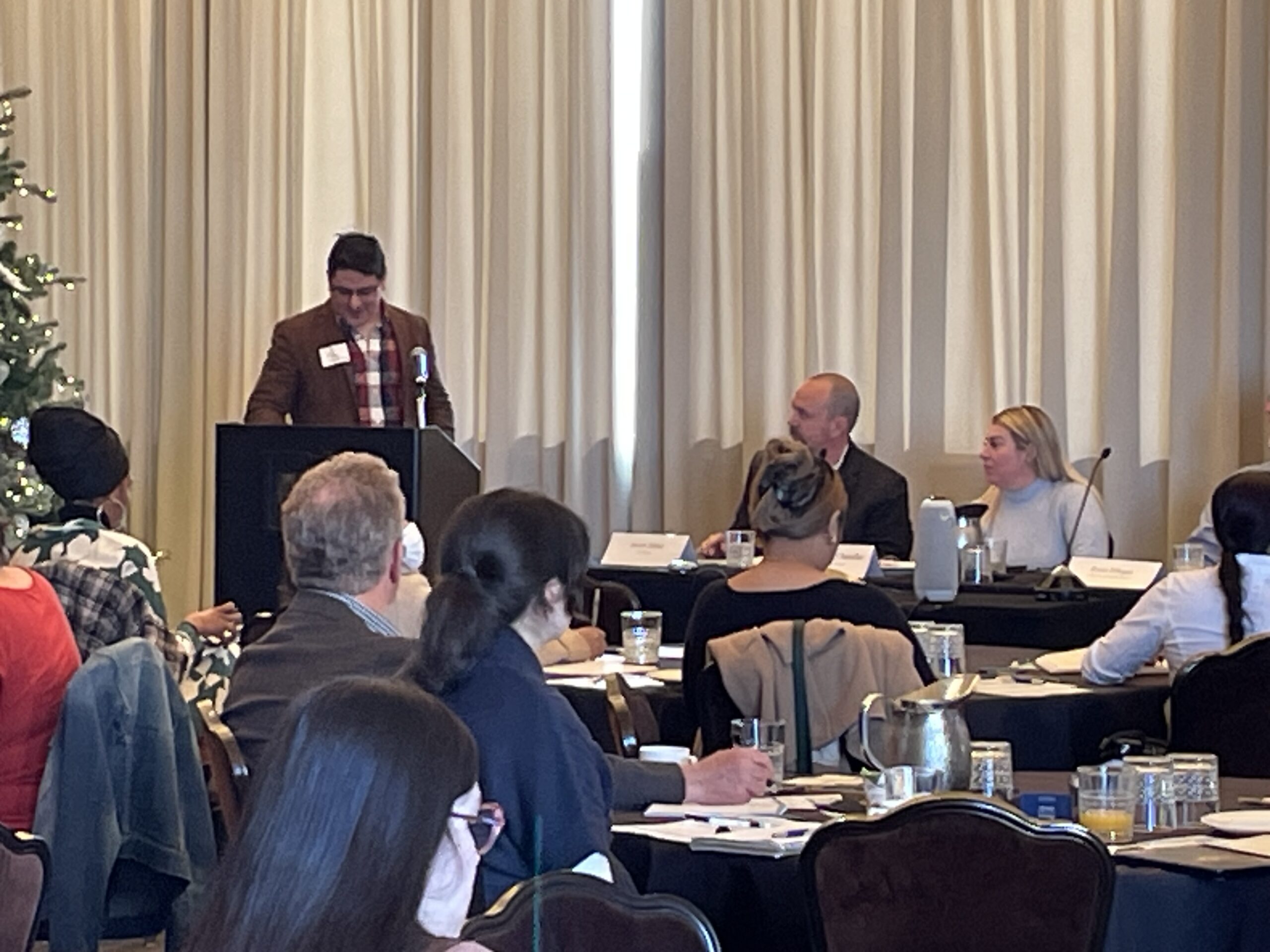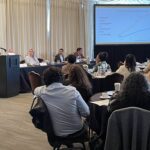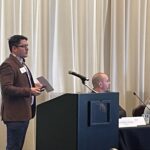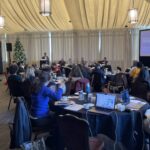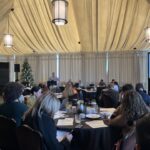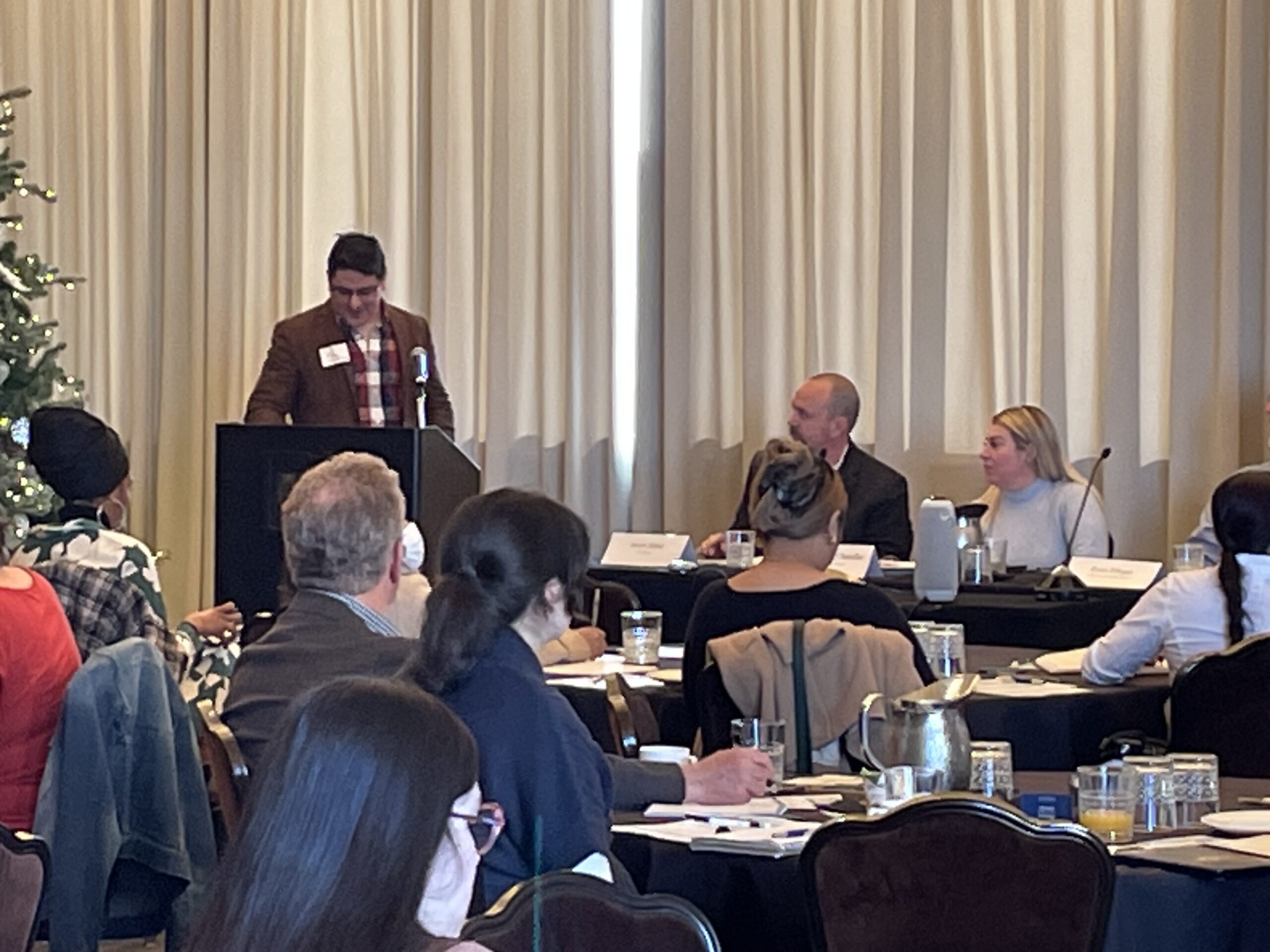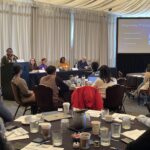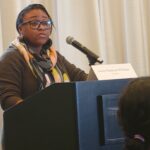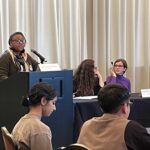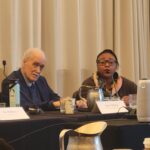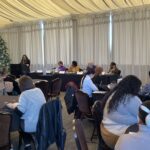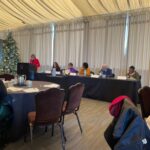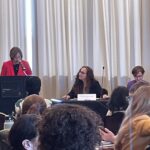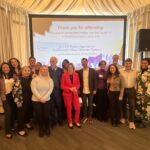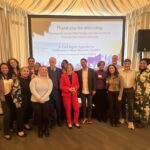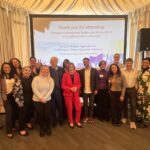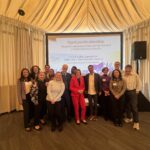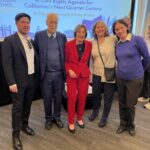A Research and Policy Event:
New Data and Policy Proposals for CA to Build a Path Forward in an Anti-Civil Rights Era
The UCLA Civil Rights Project is celebrating its first quarter century by taking a critical look forward at the upcoming generation—not at the history of civil rights challenges, debates over older policies, or at prior victories. We are focused on what California needs in the next quarter century to address the challenges facing our rapidly changing society. Our research series, “A Civil Rights Agenda for California’s Next Quarter Century,” harnesses the skills of innovative thinkers from various disciplines to think systematically and deeply about how California is transforming and what the implications are for the future of racial justice.
On December 5th we shared new research and engaged in discussion, charting a new path forward in an anti-civil rights era.
PROGRAM & SCHEDULE
9:00 Doors open, check-in, light breakfast available
10:00 WELCOME: UCLA Civil Rights Project
OVERVIEW (via Video below):
Linda Darling-Hammond, President & CEO, Learning Policy Institute; President, State Board of Education (15 mins.)
SESSION 1: Patterns of Change – Demographic Transformation & Implications
10:20 Introductions: Moderator, Jacob Hibel, University of California-Davis
10:25 Presentations
1. The Changing Racial and Ethnic Composition of the School-Age Population in CA, Raeven Chandler, University of Wisconsin
How is the school-aged population (ages 5-17) expected to change with respect to its demographic composition, generational status, home language, and educational attainment? To better prepare its workers and sustain the state economy, leaders across the state need to understand how the demographic composition of the state is likely to change, and whether we are narrowing the existing large racial/ethnic gaps.
2. California School Demographics and School Re-Segregation, Ryan Pfleger, UCLA Civil Rights Project (see Presentation SLIDES)
This research examines multiple measures of segregation in California public schools from 1988 to 2022. We review segregation by race and class, compare magnet and charter schools, and describe racial inequalities in high school course offerings. As California’s education system grows more multiracial, historical and ongoing inequities are perpetuated. This demands strategic intervention for meaningful change.
3. Gentrification and Schools: Challenges, Opportunities and Policy Options, Kfir Mordechay, Pepperdine University (See VIDEO presentation below)
This study examines how different types of gentrification are linked to school demographic changes in California metropolitan areas, exploring whether gentrification has the potential to desegregate schools, or if it merely rearranges the geography of segregation for students of color, reinforcing racial and economic inequality. California’s legal and policy context contributes to increased school segregation in some sectors while constraining actions that potentially facilitate school desegregation.
4. Geography of Opportunity, David Mickey-Pabello, UC-Riverside, Inland Empire Labor and Community Center (See VIDEO presentation below)
In anticipation of the next twenty-five years of civil rights policy in California, this presentation highlights social mobility between the last two generations and shares insight into which groups could be best served by civil rights policy interventions. The author uses Opportunity Insights’ publicly accessible database, with data from the U.S. Census Bureau and Internal Revenue Service, to geospatially analyze the social mobility of children born in the Golden State relative to their parents.
10:55 Audience Q&A (20 mins)
11:15 Implications for Future Policy: Moderator (5 mins)
11:20-11:30 SHORT BREAK
SESSION 2: Persistent Inequality in the “Golden” State
11:35 Introductions: Moderator, Michal Kurlaender, University of California-Davis
11:40 Presentations
1. Academic Disparities in California’s Central and Imperial Valleys, Catalina Amuedo, University of California-Merced (See Presentation SLIDES)
The Golden State boasts the largest economy in the country but is also host to significant economic inequities. Using data on K-12 students over the span of one decade, the authors document significant and persistent racial and ethnic gaps in the Central and Imperial Valleys and raises questions about how the state can begin to tackle this inequality.
2. Barriers to Diversifying the Teacher Pipeline, Kai Mathews, UCLA Center for the Transformation of Schools (see VIDEO Presentation)
Despite California’s recent, large investments toward improving educator diversity, persistently higher rates of burnout, turnover, and early retirement among teachers of color and Indigenous teachers may indicate other factors at play. Using a mix of qualitative and quantitative data collected over the course of one year, researchers sought to better understand obstacles to recruiting and retaining teachers of color and Indigenous teachers in California’s schools.
LIVESTREAM RECORDING begins at Dr. Mathews’ Presentation and continues to the program’s end.
3. The LASANTI (Los Angeles, San Diego, Tijuana) Megalopolis & Critical Importance of Binational Ties, Gary Orfield, UCLA Civil Rights Project
The area stretching from Los Angeles down through San Diego and across the U.S.-Mexico border to Tijuana is populated by 26 million people, predominantly Mexican in origin and a central feature of California’s future. This presentation visualizes Southern California and Northern Baja as part of an immense and interconnected urban economy, one that has tremendous potential but suffers from very serious inequality and is potentially threatened by federal policy.
4. Desegregating Classrooms and Developing Racial Literacy in our Schools, Alexis Patterson Williams, University of California-Davis (see Presentation SLIDES)
Despite an alleged national “racial reckoning” after the police murder of George Floyd in 2020, little has been reconciled in the country with respect to race. Schools have long existed as a means of maintaining democracy in the United States and, given the centrality of race relations to the success of our rapidly diversifying nation, this presentation asks: What would it take to move closer to meaningfully addressing the legacy of racism in the United States, and what role might schools play in this process?
12:10 Audience Q&A (20 mins.)
12:30 Implications for Future Policy, Moderator (5 mins.)
12:40-1:40 LUNCH & KEYNOTE:
Thomas A. Saenz, President & General Counsel, Mexican American Legal Defense and Educational Fund (25 mins)
SESSION 3: Policy Choices and Opportunities to Advance Civil Rights
1:45 Introductions: Moderator, Patricia Gándara, UCLA Civil Rights Project
1:50 Presentations
1. California’s Unrealized Opportunity: Multilingualism for All, Ilana Umansky, University of Oregon (see Presentation SLIDES)
40% of California’s students speak a language other than English at home. This represents a huge asset for the state in an increasingly globalized world. Yet, in spite of the state’s documented aspirations to provide bilingual instruction for at least half of its students by 2030, it is not on course to realize this goal. Relatively few students receive this education. This presentation makes the argument for why California can and must do better.
2. The Potential of California’s Community College Baccalaureate for Closing Racial Equity Gaps, Marcela G. Cuéllar, University of California-Davis (see Presentation SLIDES)
The bachelor’s degree remains a fundamental path to economic opportunity in the United States. Ensuring equitable access to the degree is critical, but is constrained by long-standing structural barriers in the state’s higher education system. This presentation summarizes the promising outcomes of the California Community College Baccalaureate program and its potential for reducing the yawning gaps in bachelor degree completion among racial and ethnic groups in the state.
3. A Paradigm Shift for the California Master Plan: from Institutions to Individuals, Su Jin Jez, California Competes: Higher Education for a Strong Economy (see Presentation SLIDES)
The 1960 Master Plan formalized California’s three public higher education segments (UC, CSU, CCC), provided tuition-free education, and illuminated a pathway into higher education for anyone with the ability to benefit. However, in today’s more diverse California and predominantly knowledge-based economy, the Master Plan increasingly reinforces inequities between Californians, acting less as a pathway to opportunity and more as a barrier. This presentation envisions a radical paradigm shift for the Master Plan and suggests a way to better leverage higher education as a tool for social and economic mobility.
4. The Civil Rights Law California Students Need, Mark Rosenbaum, Public Counsel
California’s public education system is designed to serve a minority of its students very well, and the rest, not well at all. This presentation argues that the legal framework underpinning California students’ constitutional right to an education obligates state educational leaders to eliminate the channels responsible for its dual school system. Appeals to moral rightness have not worked to date, nor have policy-driven approaches that lack serious accountability mechanisms and leave space for non-compliance. To fix statewide inequities, we must go beyond a basic understanding of the right to education in California. This begins by changing the conversation from what the California statewide education system can deliver to what it must deliver.
2:25 Audience Q&A (20 minutes)
2:45 Implications for Future Policy and Civil Rights, Moderator (5 mins)
2:50 What role should California play in an anti-civil rights era? Can the state be a beacon for the nation?
3:30 Wrap
Presentation summaries, slides, the program and speakers’ bios are found HERE. A LIVESTREAM RECORDING is also viewable.

The Civil Rights Project/Proyecto Derechos Civiles is grateful for the support of the University of California Office of the President, the Bill & Melinda Gates Foundation and the William and Flora Hewlett Foundation. The findings and recommendations presented here are those of the authors and do not necessarily reflect the positions or policies of Civil Rights Project funders.

